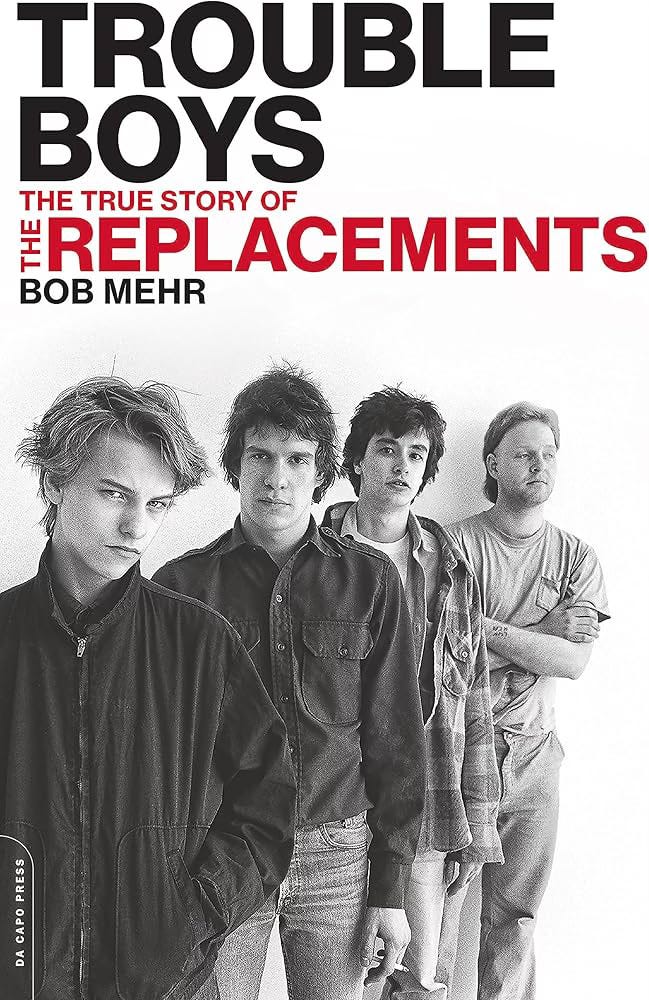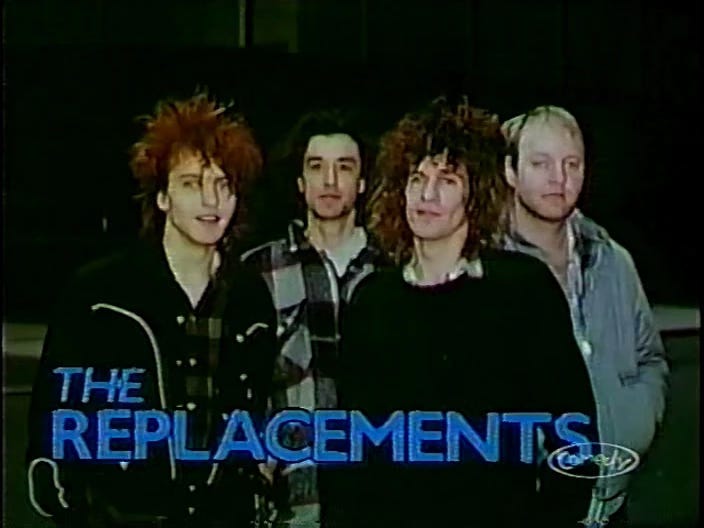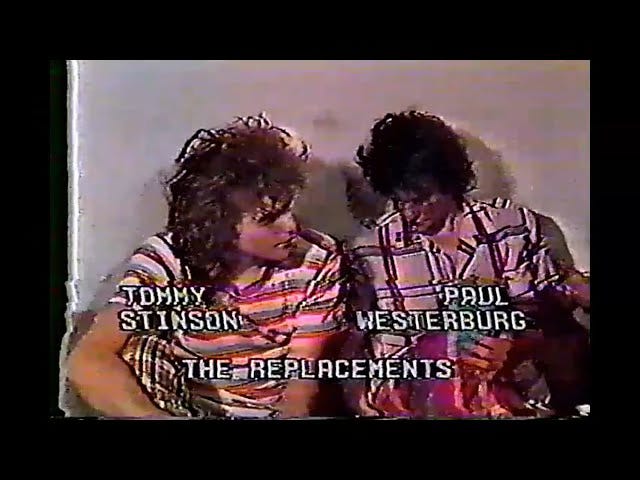Review: Trouble Boys by Bob Mehr
My thoughts on Mehr's extensive biography of the Minneapolis alternative legends.
I finally read Bob Mehr’s excellent biography of the band, Trouble Boys: The True Story of the Replacements. Not surprisingly, given that Mehr is a stellar writer who also has won multiple Grammys' for Best Liner Notes, it was a stellar read. I commented on BlueSky that sometimes I’ll feel bogged down when I’m reading a book about one band or person, even if I absolutely adore that person or group. But I never got that feeling with Trouble Boys, which is a real testament to just how engrossing of a book Mehr wrote.
While I had a broad sense of the Replacements history, Mehr’s book made me better understand the issues that were lurking throughout the group’s history as well as their tendency to self-sabotage. The idea of the alternative group that was not really appreciated in its moment but that had tremendous influence on future generations, I could wrap my head around that. Because I came to the Replacements after the fact, when they’d been entrenched as this alternative music touchstone, I didn’t quite grasp how much the Replacements let slip through their fingers, especially during that TIm-Pleased to Meet Me moment when they could have potentially broken big.
I also had no real sense of Bob Stinson’s demons that caused him to be fired by the band, nor did I really understand who Paul Westerberg is. His real cutting wit was clear in every quote he offered up and was used throughout the book. Sometimes these narratives sand the edges off these figures, but Westerberg’s edginess was quite clear to me. He’d never write a memoir like Bob Mould did, but I would be kind of curious to read that and I’m sure it would be entertaining as well. I’m going to talk about another group who is always linked with the Replacements, but I always end up thinking about those other titans of alternative music from the Twin Cities in the 1980s: Husker Dü. Generally, I prefer the Replacements as a group to Husker Dü, yet I’ve always found Bob Mould’s work as a solo artist and with Sugar to be much more enticing than Westerberg’s solo stuff. But Westerberg wrote “Alex Chilton,” a song about the lead singer of one of my favorite groups (Big Star), and that expresses perfectly what it’s like and means to love some song: “I’m in love, what’s that song? Yeah I’m in love with that song.” Also, what a great line: “never travel far without a little Big Star.”
Tommy Stinson and Chris Mars were also strangers to me (I knew that Bob’s younger brother was also in the group; honestly, I did not know Chris Mars’ name/who he was until reading the book), so learning a bit about them and their backstory helped color in the history of the group ( as well as Slim Dunlap, who stepped in when Bob Stinson left the group).
The Replacements are really an exercise in frustration, which is only brought into clearer vision when they’re put in conversation with one of their alternative 80s brethren, which is just what Mehr does.
Trouble Boys draws this really interesting parallel between the Replacements and R.E.M. There was this tremendous overlap, as Steven Hyden notes in his post recapping the “feud” between the two groups. But what makes it such an interesting way of thinking about and framing the Replacements is that it paints such a clear “what could have been.” Both of these bands were indebted, underneath all the ways in which they were “alternative,” to a band like Big Star who made beautiful, catchy music. I don’t think it’s a stretch, after hearing a lot of Let It Be to Tim and then Pleased to Meet Me, that the Replacements could’ve evolved into a group with an Out of Time/Automatic for the People-era R.E.M. level reach.
But that was the issue, they couldn’t have that progression because so many things conspired to stop it from happening. You take the band’s own self-destructive tendencies, the additions and illnesses of its members, bad luck in terms of radio play, and an inability of a slightly-wider-than-alternative audience to hear that this band was doing something in that Beatles/Big Star tradition even if it has some of the punk affect on top of it. They couldn’t put together the momentum that R.E.M. did that built to a kind of breakthrough. Reading Trouble Boys, you can’t help but feel the band missed out on so much. But, conversely, it’s in their missing out on that success that makes them the band they were and the band we love. They might have been something else, but we’d lose this shambolic, occasionally falling down group that seems to get to the heart of the whole rock-and-roll thing. Lester Bangs highlighted the lack-of-seriousness that is essential to rock and roll, and that’s something the Replacements had down pat.
It took me a lot longer than it should have to finally catch up with and read Bob Mehr’s Trouble Boys. But when I finally did, I regretted not getting to it sooner. Not only is it a well-written, thoroughly researched, and highly engrossing read, it’s also shining a light on a band that displays so much of what makes rock and roll (and all its ancillary forms) fun. They’re a band that’s fast and loose, but also catchy. Westerberg wrote of a world where “children by the millions scream for Alex Chilton” and the Big Star front man finally received the praise he deserved, but there should be someone pining for a world where those same children scream for Paul Westerberg too. He deserves it.
I’d also recommend Mehr’s appearance on Yasi Salek’s Bandsplain podcast where he discussed the band:







I have gotten over The Replacements.